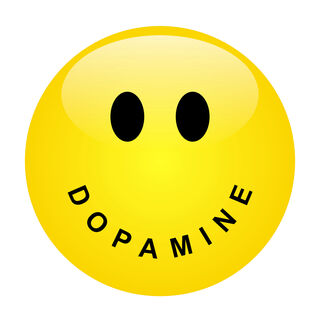Health
The Science of Novelty
How new solutions to old problems can improve your mental health.
Posted January 21, 2022 Reviewed by Ekua Hagan
Key points
- For many people, self-care and mental health may be declining with the new COVID surge and a disappointing new year.
- Dopamine is known as a feel-good neurotransmitter and when balanced, contributes to a positive mood, emotions, motivation and outlook.
- The field of psychophysiology can provide a blueprint for change via intentional dopamine activation through positive novelty.

Reported rates of anxiety and depression have quadrupled in the last two years. To make matters worse, as we are deep in the COVID surge, many are abandoning the very self-care habits that stabilize their mental and emotional health. As a result, new year’s resolutions aimed to get you back on track, the ones that seemed so important this year, are possibly falling by the wayside. So, as we head into this complex new year, a novel approach to those habits, and an understanding of dopamine’s role within it, are perhaps the first steps to recovery.
Reduced self-care, anxiety, and depression go hand in hand
The New Year is, for many, a symbol of hope, growth, and new beginnings. As such, you may have set resolutions for yourself and intended on using this time as a period of positive transformation, a time to establish behaviors that will help you thrive. Unfortunately, if your New Year’s resolve is fading amid another wave of COVID, the hopes of improving your mental health during these difficult times may be waning as well. Anxiety and depression may be ever-present, and the self-care habits that keep you emotionally stable and resilient are probably the habits that have suffered most through the pandemic.
Although these behaviors may seem superficial given the current challenges, they are not. If a behavior carries emotional significance for you, it can’t help but impact your mental health when it is out of balance. So, too, with all the challenges of the past few years and disruptions to your regular routines, habits that you took for granted in your pre-pandemic life may require overt intentionality to maintain through the pandemic. A strong foundation in the self-care behaviors that matter most to you is necessary for emotional resilience and a sense of thriving, especially during challenging times.

Given all the challenges of the last two years, nurturing that thriving version of yourself all at once seems psychologically more important yet extra arduous given the circumstances. How do you find the motivation and positive outlook necessary to take care of yourself when you feel discouraged, and your resolve is waning?
Understanding the mind/body complex shows a path for change
The field of psychophysiology, or the study of how your mind and body work together to control behavior and promote physical responses, can provide a blueprint for change. Psychophysiology shows us that your mind/body complex is a continual feedback loop. In other words, what your mind focuses on creates physiological changes, yet specific physiological states impact perceptions, emotions, and behavior. More simply, you can change behavior to make a biochemical shift in your brain and body, yet this biochemical shift further dictates the way you see and behave. It can be an upward spiral or a downward spiral.
Some neurotransmitters in your brain exemplify this feedback loop, and dopamine is one of them. Neurotransmitters are biochemicals that transmit nerve impulses across a synapse to a target cell. Certain neurotransmitters, like dopamine, stimulate the parts of your brain associated with emotional and behavioral responses; they profoundly affect how you perceive and feel.

Balanced dopamine can improve outlook and motivation
Dopamine is known as a feel-good neurotransmitter. When it is balanced, dopamine contributes to a positive mood and emotions and helps with motivation and goal-directed behavior. It also contributes to a positive outlook for the future. It is produced in response to emotions and behaviors and directly contributes to cultivating them.
What does this have to do with establishing self-care routines that contribute to your mental and emotional health, habits that may help cut down on the anxiety and depression that has skyrocketed in the past two years? As counterintuitive as it may seem, novelty may be the key.
Novelty and dopamine go hand in hand
A sense of novelty activates the dopamine system directly. As a result, it enhances mood, positive outlook, motivation, and goal setting. A positive sense of novelty has also been shown to increase creativity in dealing with stress, lower perceived stress, and anxiety, and lessen depression—even in the time of COVID. Creating a sense of novelty in achieving goals or addressing adversity is a significant contributor to recovering your mental health and establishing important self-care routines for the new year and beyond.
However, it is essential to note that creating a positive sense of novelty is far different from engaging in what psychology terms novelty-seeking behavior (NS). Novelty-seeking behavior is typically associated with extreme risk, impulsiveness, and extravagance and can lead to addictions and destruction in mental health. Conversely, a positive sense of novelty is related to various aspects of wellbeing, including engaging in divergent thinking, creative ideas, new perspectives, possible solutions, and performing day-to-day activities differently than usual.
How to create a novel approach to goal behaviors or current challenges
Amid a new surge of COVID, at the start of a new year, and at a time when anxiety and depression are skyrocketing, self-care for our mental and emotional health is essential. So many of us have fallen into restricted habits and patterns in daily life that are completely void of any sense of novelty, and we may be suffering the mental and emotional tolls. If this new year carried a sense of hope and new beginnings, and now, after a month you feel that hope dissipating, how can you enact a different perspective? Even if your resolutions are the same this year as last year, how can you change your strategy in achieving them? How can you apply divergent thinking and fresh new life to the self-care habits that are the foundation of your mental and emotional health?

Everyone's solutions are unique to them, but changing your common approach will begin to activate your dopamine. Small changes add up. Break familiar routines and replace them with new ones, be creative, or try a different approach to an established goal, bring intention to novelty even when facing the challenges of the pandemic, and look at old problems with new solutions. Your dopamine system will reward you by contributing to a more positive emotional state and mood, motivation, more goal-directed behavior, and help improve various other aspects of your wellbeing.




